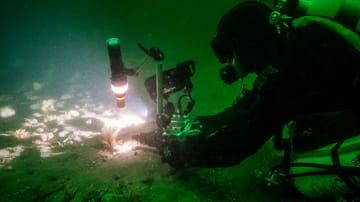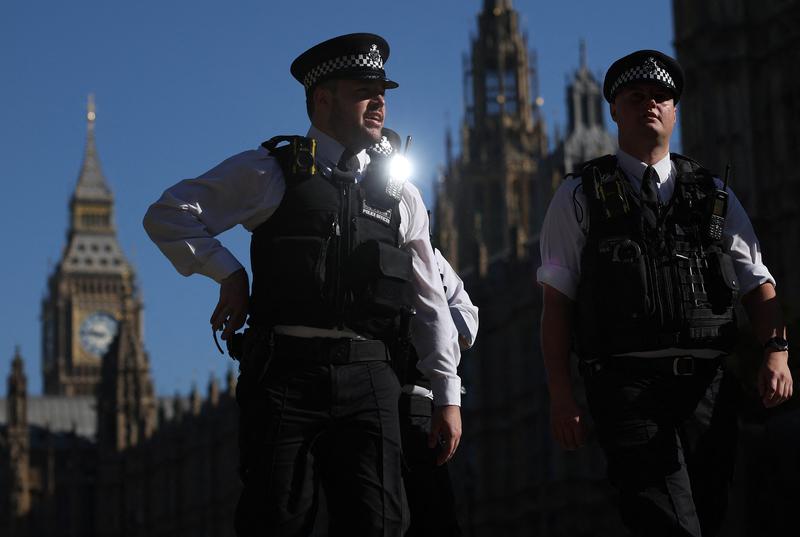Possible natural gas drilling off Borkum is heavily criticized. Greenpeace is now raising serious allegations against the responsible ministry.
Did everything go right with the plans for the potential natural gas drilling off the East Frisian island of Borkum? The environmental organization Greenpeace says: No. As the organization announced on Friday in a letter available to t-online, crucial documents are said to have been swept under the table during the planning. Environment Minister Christian Meyer contradicted this accusation when asked by the dpa news agency. Greenpeace raises serious allegations against the Lower Saxony Ministry of the Environment and speaks of a scandal.
In detail, it is about an important report on “reef structures worth protecting” near the planned drilling sites. The Lower Saxony State Office for Water Management, Coastal Protection and Nature Conservation (NLWKN), which reports to the Ministry of the Environment, is said to have this report, but it was not included in the planning approval process for the planned construction of natural gas production facilities. This resulted in a Greenpeace request for the Lower Saxony Environmental Information Act (NUIG), it is said.
Greenpeace speaks of “scandal”
Greenpeace energy expert Anike Perts says that the report should be rated as “highly relevant” with regard to possible environmental damage from the planned gas drilling. In her opinion, it is a “scandal that Lower Saxony’s Ministry of the Environment has so far withheld such central information”. It goes on to say that the state government must stop the planned drilling “immediately in the immediate vicinity of reefs that are worthy of protection”.
Greenpeace research had also revealed that the “suspicious reef areas worthy of ecological protection” were reported to the Federal Agency for Nature Conservation, but “the existence of the expert opinion prepared for the assessment of the seabed biotopes of the coastal waters off Borkum was concealed in the approval process”.
Environment Minister Christian Meyer contradicted the allegations. “There are no secrets,” said the Green politician of the dpa. “There are investigations of the Wadden Sea by the national park administration, which is constantly looking at what is changing in the biotope structures there. We also reported these new findings to the federal government, and we also published them at the request of Greenpeace.” This information would also be part of the plan approval process, the minister said. What exactly these new findings look like is unclear. Meyer did not speak of an expert opinion.
A spokesman for the State Office for Mining, Energy and Geology, which conducts the planning approval process, said to the dpa that so far neither an expert opinion nor other investigations into the possible stony reefs have been part of the process.
Research divers explore the seabed
According to the information, the allegations of the environmental organization are based, among other things, on their own investigations on site. Greenpeace had research divers from Submaris dive the seabed at the relevant points. This is an area between the Dutch island of Schiermonnikoog and the East Frisian island of Borkum.
The researchers found “heavily overgrown, species-rich stone structures”. These are habitats for lobsters, crabs and a variety of fish. They are all “seriously threatened,” Greenpeace said. The area extends on the one hand to the drilling sites planned on the Dutch side, but on the other hand also to the cable route that is planned in the immediate vicinity for the drilling platform on the German side.
According to Greenpeace, Philipp Schubert, marine biologist at Submaris, made it clear that the reefs, which it is “absolutely important to protect”, are a “magic garden of sea anemones, sponges, soft corals and sea moss”. Such a diversity of species is only possible because the stone reefs described exist there. The reefs are “oases of biodiversity” and must be “under strict protection”. Samples are currently being taken from the stones and further investigations are being carried out.
Gas drilling halted for the time being
The Dutch company One-Dyas is planning to develop a natural gas field around 20 kilometers northwest of the North Sea island of Borkum. The preparatory work should actually have started, but a Dutch court stopped all measures for the time being due to complaints from the city of Borkum and numerous environmental organizations. Read more about the background here.


